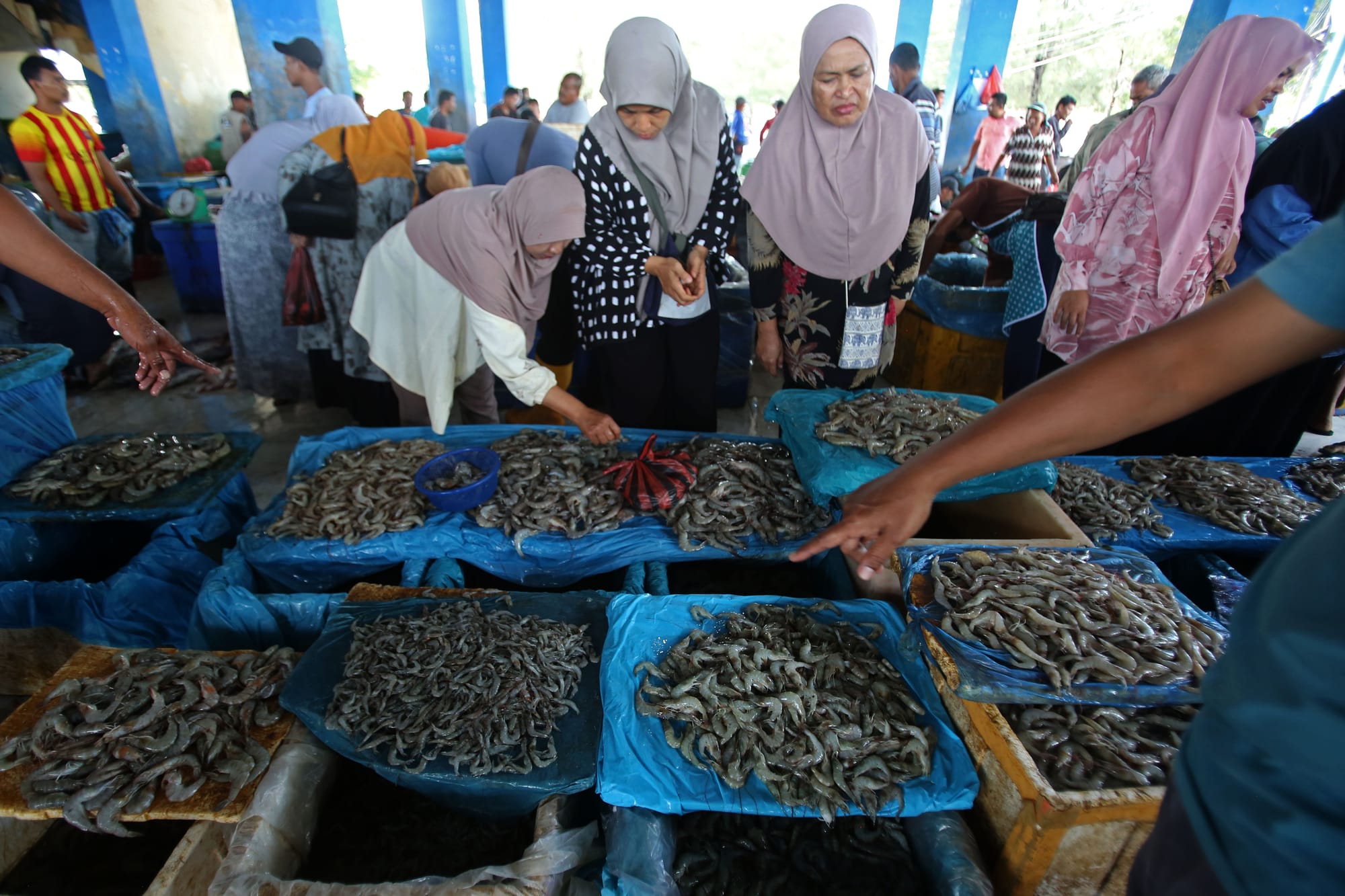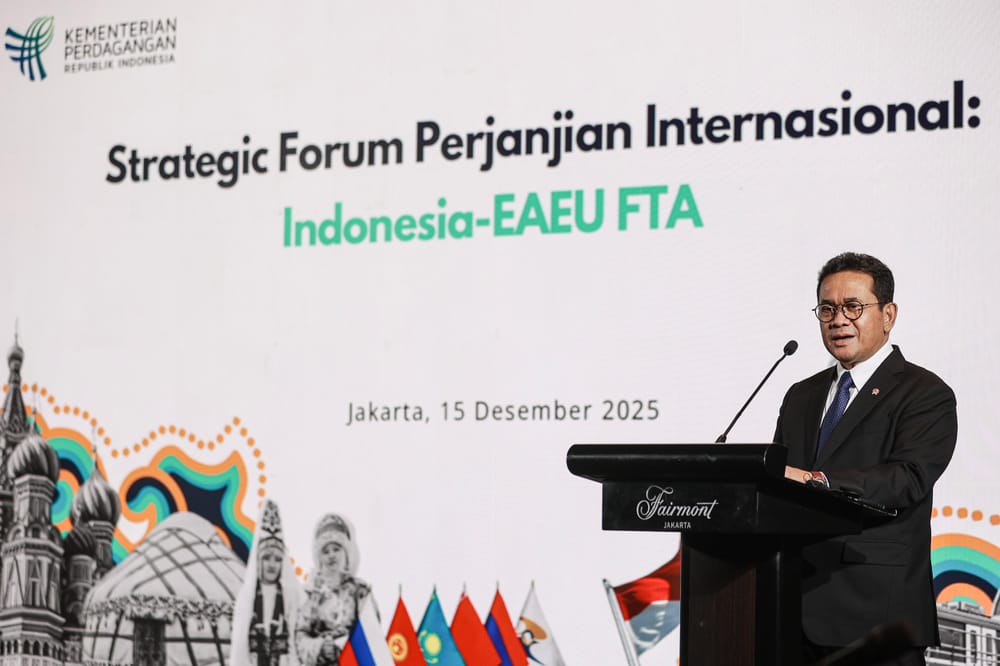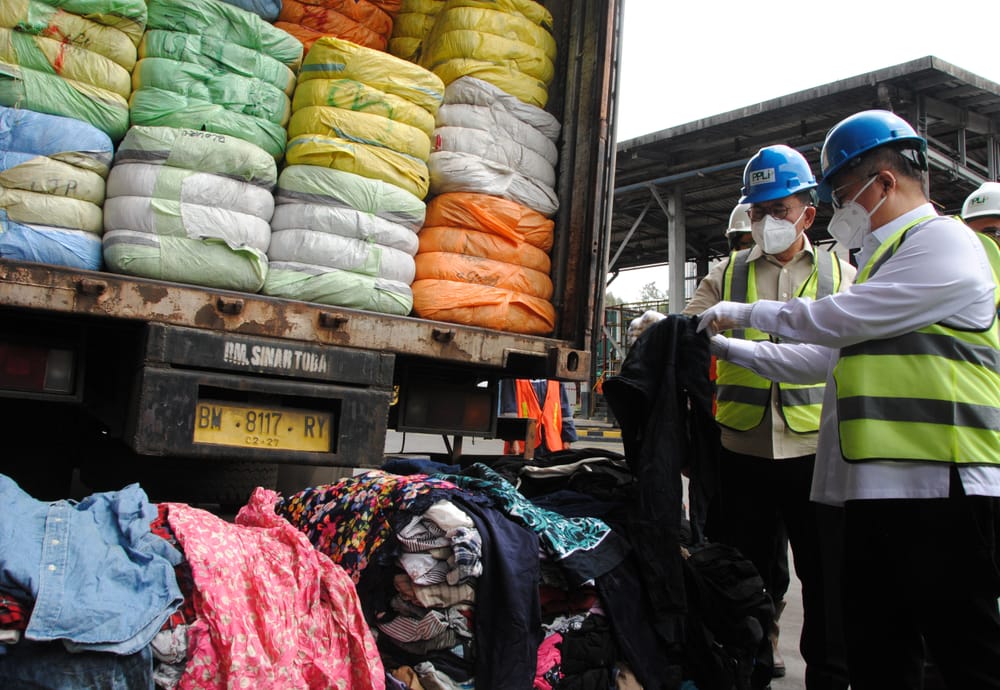The Indonesian government ensures that mitigation measures related to the findings of radioactive cesium-137 (Cs-137) exposure in the Cikande industrial area, Serang, Banten, are carried out in a coordinated manner across ministries.
This issue became a concern after the United States Food and Drug Administration (FDA) issued a new policy requiring radioactive-free certificates for exports of shrimp and spices from Indonesia.
Minister of Industry Agus Gumiwang Kartasasmita emphasized that public safety and environmental feasibility of industry are the government's top priorities. Agus stated that all industrial activities in Indonesia must run according to the principles of public safety and applicable health and environmental standards.
"This radiation issue must be handled quickly, scientifically and transparently so as not to disrupt public trust in domestic manufactured products," said Agus in a press release, Monday (13/10/2025).
According to the Ministry of Industry, handling coordination is carried out with the Coordinating Ministry for Food Affairs, the Nuclear Energy Supervisory Agency (Bapeten), and local governments. A joint cross-agency team has conducted direct monitoring in the field to ensure that there are no impacts on public health or industrial activity in the area.
The government has also formed a Task Force for Handling Vulnerabilities to Radionucleide Cs-137 Radiation Hazards involving various ministries and institutions. The Ministry of Industry is an active member of this task force to ensure the safety of raw materials, production processes and distribution of industrial products remains maintained in Cikande.
The Ministry of Industry ensures that it has not found any indication of radiation exposure in the area affecting the supply chain or the quality of manufactured products. "Indonesian manufactured products are safe and comply with international quality standards. The Ministry of Industry routinely carries out quality control and certification through industrial standardization institutions," said Agus.
The Ministry of Industry also emphasized the importance of strengthening the industrial environmental governance system to prevent similar risks in the future. The government is preparing new guidelines for integrated monitoring between industrial estate managers, local governments and technical ministries so that public safety and investment sustainability can be maintained.
The Modern Cikande Industrial Estate (KI) is one of the strategic industrial areas in Banten Province, established since 1991 and managed by PT Modern Industrial Estate. This area has an industrial estate business license (IUKI) of 1,463 hectares, accommodating 271 tenants, with 181 of them already operating and absorbing more than 45 thousand workers.
Shrimp industry
On the other hand, fisheries business actors are waiting for technical certainty from the government and the FDA regarding the radioactive-free certification process. Chairman of the Indonesian Shrimp Club (SCI) Andi Tamsil said that the FDA has given trust to the Quality Agency of the Ministry of Maritime Affairs and Fisheries (KKP) as a Certifying Entity (CE) to issue shrimp export certificates to America.
However, until now, the technical process of implementing certification is still in the negotiation stage. "Until now, the specifications of the equipment are not yet available, the measurement SOP is also not yet available," said Andi. He added that business actors have asked about the readiness of the Quality Agency in carrying out this mandate because the deadline from the FDA will take effect on October 31, 2025.
According to Andi, the absence of technical guidance means that the process of procuring radiation measuring devices cannot yet be carried out. He assessed that clarity on specifications and procedures from the FDA is important so that the results of Indonesian testing can be accepted without obstacles in America.
In addition to certification, SCI also highlighted the existence of shrimp containers that had already sailed to America before the FDA policy was announced in early October. Andi said the government is negotiating so that these containers are not subject to the new rules. "That is also being negotiated, the government is asking the FDA for dispensation," he said.
In a meeting with the Minister of Maritime Affairs and Fisheries Sakti Wahyu Trenggono today, Tuesday, SCI conveyed the conditions in the field which are now affected by the slowdown in the purchase of harvests. Many cold storage, said Andi, are holding back purchases while waiting for certainty on exports to America.
"They are also not sure, what if they buy it and can't send it," said Andi. In the meeting, Andi said the government plans to invite cold storage associations to ensure that the absorption of pond products continues and to convince them that exports will return to normal soon.
The farmers also questioned whether they could continue seeding amid market uncertainty. According to Andi, the government ensures that cultivation activities can continue. “The Minister said, just seed, it will definitely be resolved. The government is very confident that this can be shipped to America again soon,” he said.

SCI hopes that the negotiations between the Indonesian government and the FDA can reach an agreement before the October 31 deadline so that shrimp exports are not disrupted. “We hope there will be something clearer this week,” said Andi. He emphasized that the association supports the government's steps and is ready to help from a technical and testing facility perspective.
Japan experienced a similar situation after the Fukushima Daiichi nuclear reactor leak in 2011, which led to a ban on food imports by more than 50 countries. The Japanese government responded by implementing a national radiation monitoring system, testing every batch of product, and routinely publishing test results to the public and trading partners. The testing data became the basis for export destination countries to assess the safety of Japanese food.
In its official report, the FDA assessed that Japan had carried out consistent radiation monitoring for ten years, until they finally revoked Import Alert #99-33 on September 22, 2021.
“After conducting a thorough analysis of the strict control measures implemented by Japan, which include decontamination, monitoring, and enforcement processes, as well as reviewing the results of food product sampling from Japan over the past 10 years, and ensuring that the risk of radioactive exposure to American consumers from imported products from Japan is very low, the FDA decided that these import restrictions are no longer needed to protect public health and will therefore be lifted,” the report wrote.
In Reuters' notes, after a similar review by the European Commission, two years later the European Union lifted restrictions on Japanese food imports on July 13, 2023, with the note that Japan would continue its radiation monitoring and data publication system openly. Reuters reported that the series of policies allowed Japanese food exports to increase again, recording the highest value in 2024 of 1.507 trillion yen.







